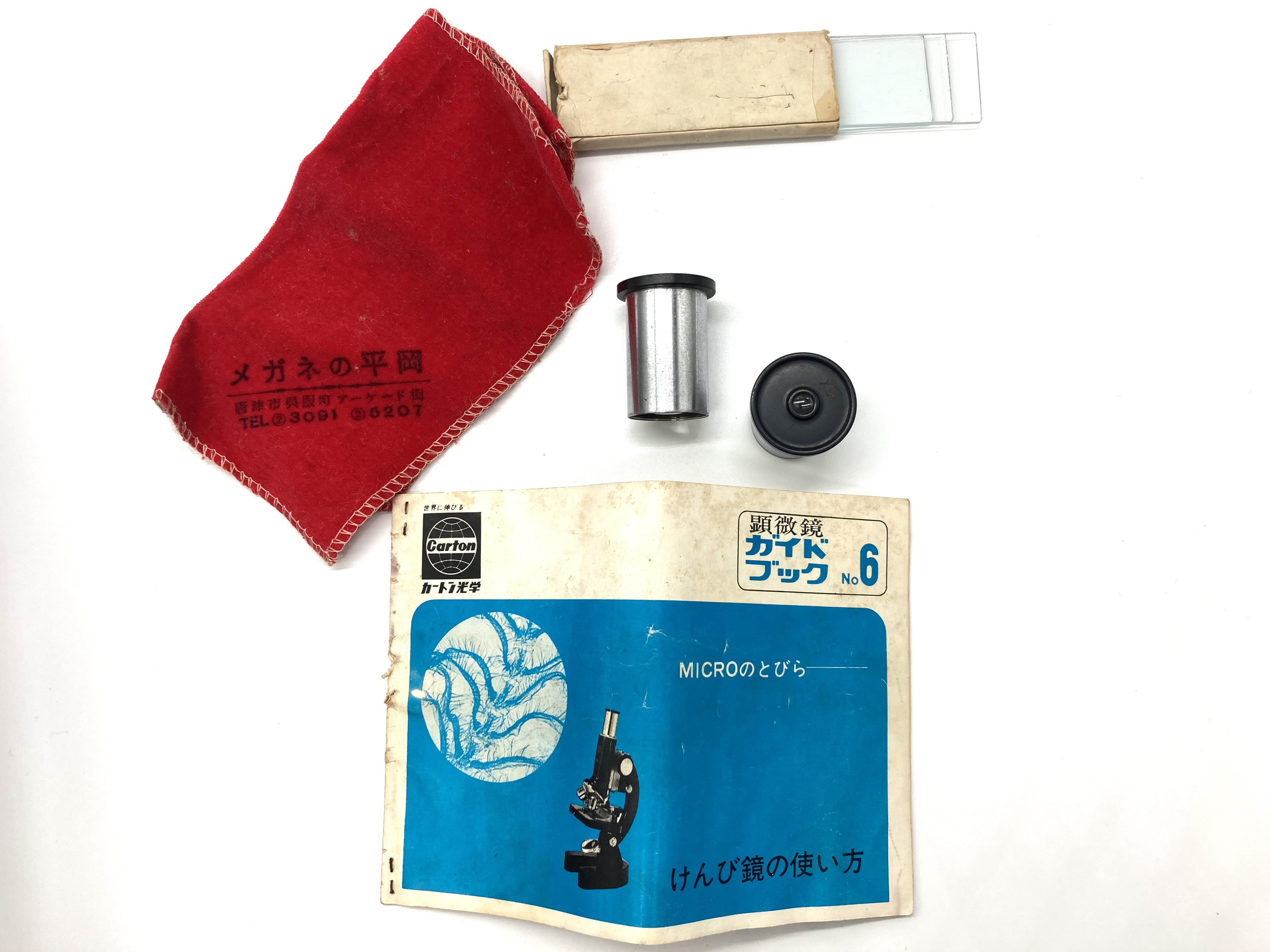2025-05-06_14-31-16
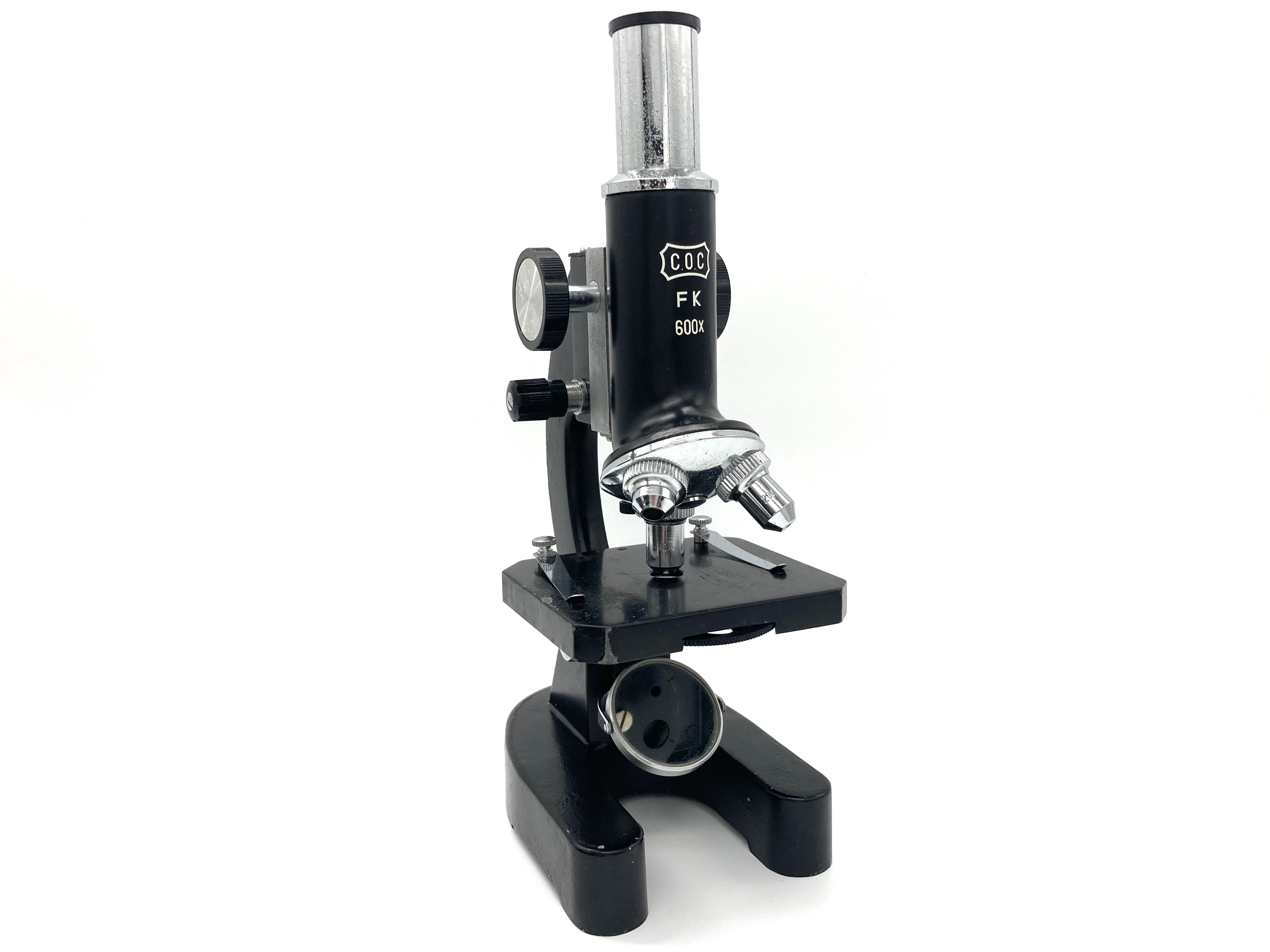
When I was a child, everything I saw seemed beautiful. Perhaps many others felt the same. I believe I did, too. But the way I saw the world was a little different. I remember myself as a boy who loved science.
More than twenty years ago, when I was in third grade, my paternal grandfather gave me two microscopes. One of them was this one the Carton FK 600X, made by Carton Optical.
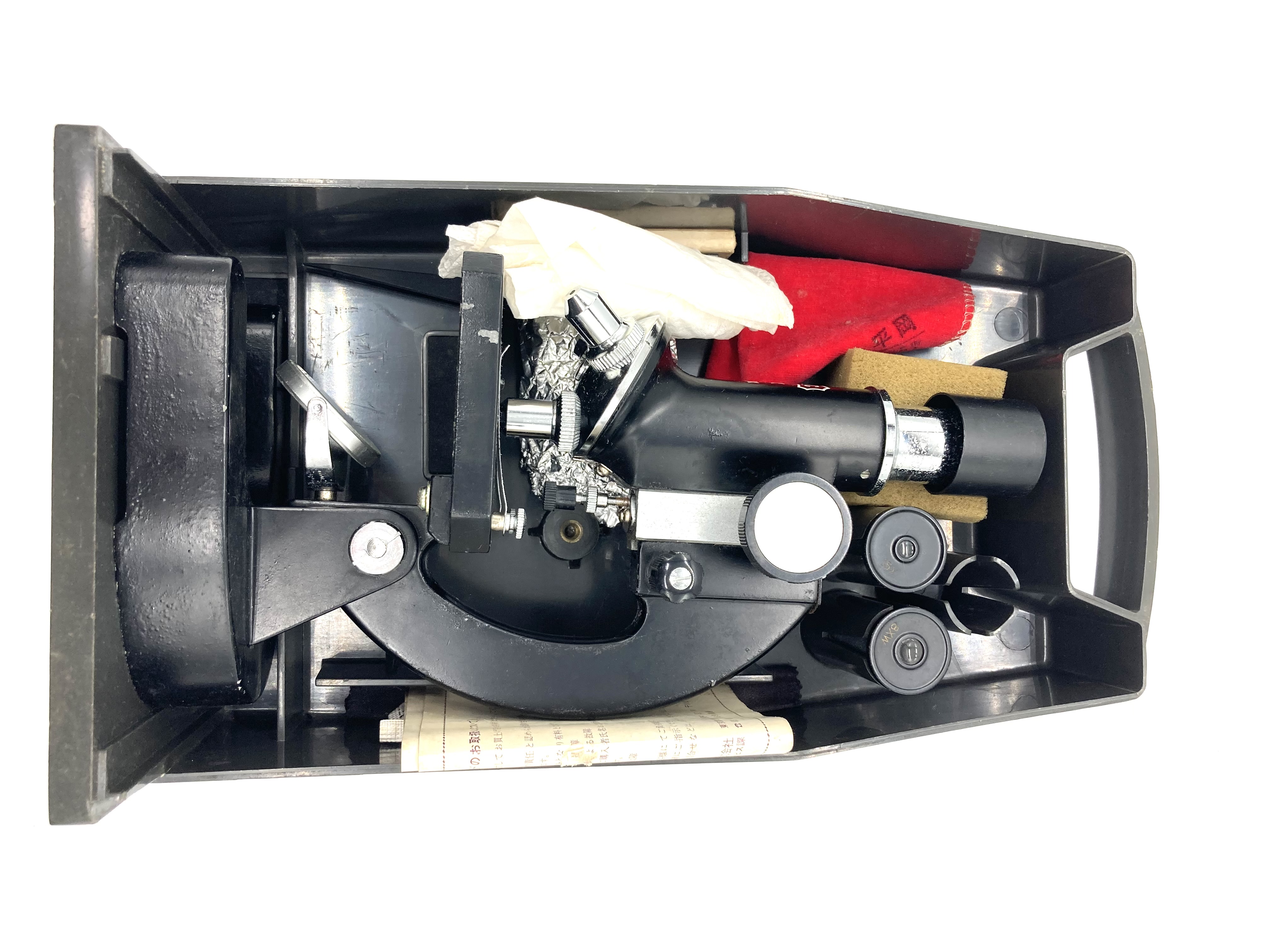
The Carton FK 600X was a student microscope manufactured in Japan in the 1970s. It sold for about 12,000 yen at the time. Despite its simple construction, it offered sufficient optical performance and remains a fully usable instrument for observation today.
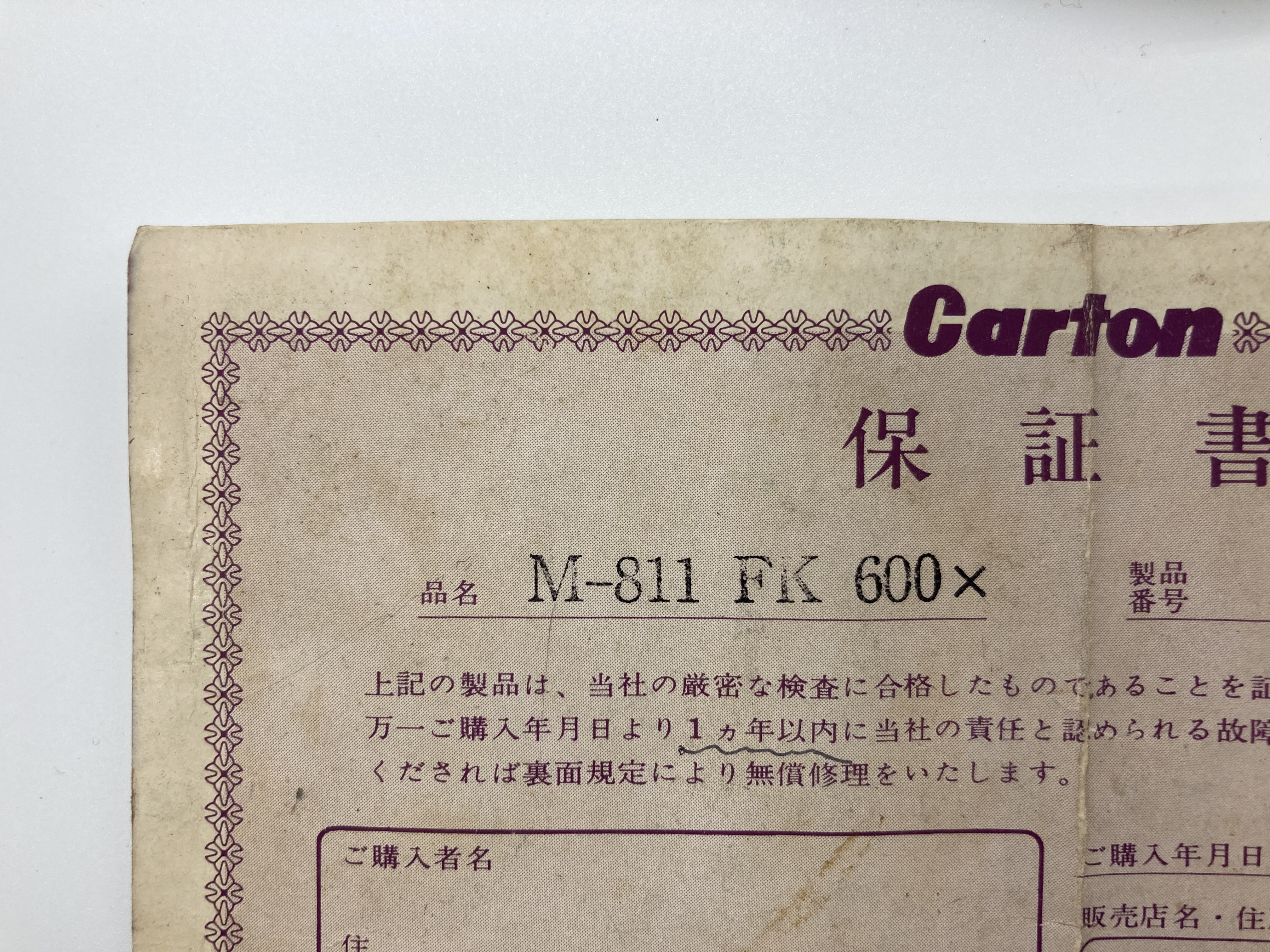
I still remember the sensation I felt the moment I gained what could be called a “scientific eye” a way of seeing what the naked eye cannot.
Though it’s rarely seen now, it’s a monocular model. I used it to sketch plankton often. I didn’t have access to Giemsa stain or any proper reagents, but even thinly sliced samples cut with a razor were enough to reveal cellular structures.
This story of me and the microscope is only a small part of my journey through science, but it has been a long companionship.
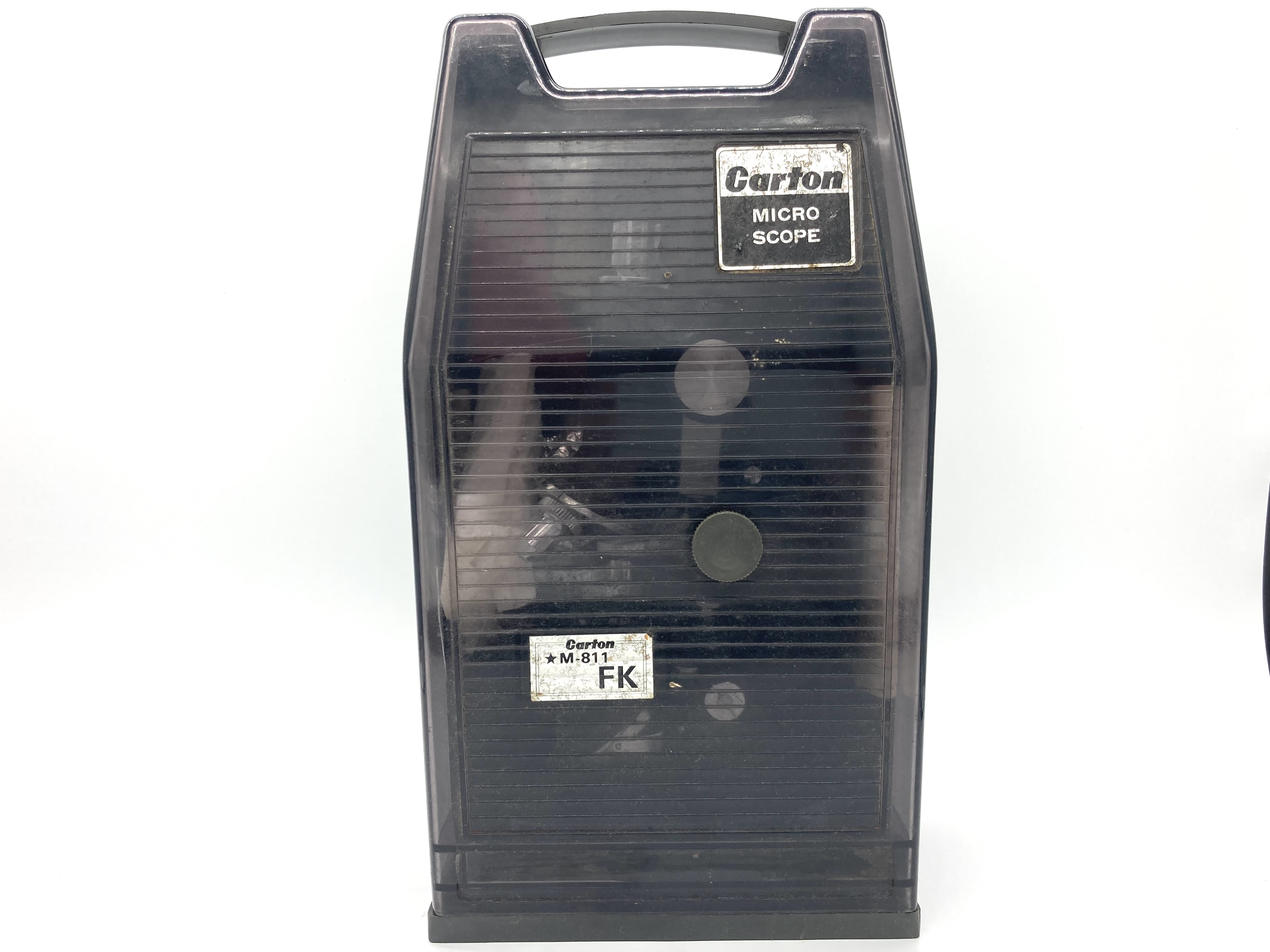
Since then, I’ve earned a doctorate and now continue biochemical research at a university. There, I use modern instruments like fluorescence microscopes and atomic force microscopes. But these days, there’s hardly any time left for me to love science simply.
To survive the fierce competition, I must sacrifice much of my time. That’s the reality—I understand it. Without sponsors, research can't go on, and we’re constantly expected to produce results with economic value.
At times, I no longer know whether I’m a scientist or a businessman.
Back then, the future I imagined through that lens wasn’t supposed to feel this empty. Now, my focus locks only onto the immediate reality, and the dreams I once saw blur into faint illusions.
Still, I suppose I’ve managed not to forget who I am because my path through science has been a long one—thirty years and counting. This microscope, of course, is part of that path.
Compared to today’s instruments, it’s undeniably outdated. But to me, it remains the only scientific eye that can bring the most important things into focus.
I offer quiet respect to the grandfather who entrusted it to me. And I hope that, someday, science may once again be allowed to be free.
